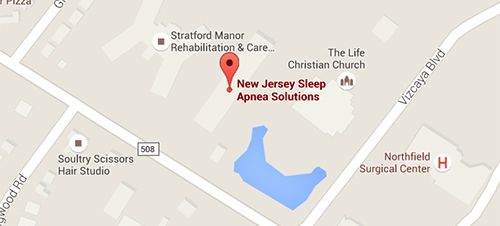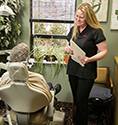Does Smoking Cause or Worsen Sleep Apnea?
Submitted by New Jersey Snoring Solutions on Fri 08/27/2021 - 09:00

Everyone knows that smoking is bad for your health. But have you ever wondered if smoking causes or worsens sleep apnea? At New Jersey Sleep Apnea Solutions, Dr. Ivan Stein and Dr. Allen Stein feel strongly about educating patients about what can impact sleep apnea.
Here, the doctors discuss how smoking impacts sleep apnea.
The Association Between Smoking and Sleep Apnea
There is a strong association between smoking and obstructive sleep apnea. Obstructive sleep apnea is the most common form of sleep apnea. It occurs when breathing is interrupted during sleep due to the throat muscles relaxing, causing the airway to be obstructed.
Smoking has a strong association with obstructive sleep apnea for the reasons discussed below. This association is also linked to how much a person smokes; heavier smokers are more likely to have obstructive sleep apnea and other health problems. However, any amount of smoking can interfere with sleep health. The best way to avoid the impact smoking can have on your sleep apnea is to quit smoking completely.
Smoking Causes Inflammation in the Upper Airway
Cigarette smoke causes an inflammatory response when inhaled into the lungs. Inflamed airways are narrower and make it more difficult to breathe. In addition to swelling, the body’s inflammatory response includes an increase in mucus. The increase in mucus is meant to help the body remove the irritants. However, increased mucus can also make it difficult to breathe.
Nicotine Relaxes the Upper Airway Muscles
Nicotine is the addictive compound found in tobacco. Nicotine can impact the body in numerous ways. One way nicotine impacts the body is by relaxing the upper airway muscles, increasing the likelihood that a person’s airway will be obstructed during sleep.
Nicotine Disrupts Sleep
Nicotine disrupts sleep in two ways. First, it is a stimulant. It interferes with the body’s ability to fall asleep and stay asleep. A person suffering from sleep apnea will already have disrupted sleep which will only be increased by smoking. Second, nicotine is addictive. This means that throughout the night a person’s body goes through short withdrawals, causing the person to wake up throughout the night. These withdrawals cause a person to feel less rested in the morning.
E-Cigarettes Also Impact Sleep Apnea
Are you considering e-cigarettes as an alternative to smoking? E-cigarettes can also impact sleep apnea. Because e-cigarettes also contain nicotine, they too can impact your upper airway muscles and disrupt your sleep cycle. E-cigarettes also contain toxins. When inhaled, these toxins can cause inflammation in the lungs, throat and nose. This inflammation increases the likelihood that you will have difficulty breathing throughout the night.
Is Smoking Impacting Your Sleep?
For more information about how smoking may be impacting your sleep, please contact the team at New Jersey Sleep Apnea Solutions today.







